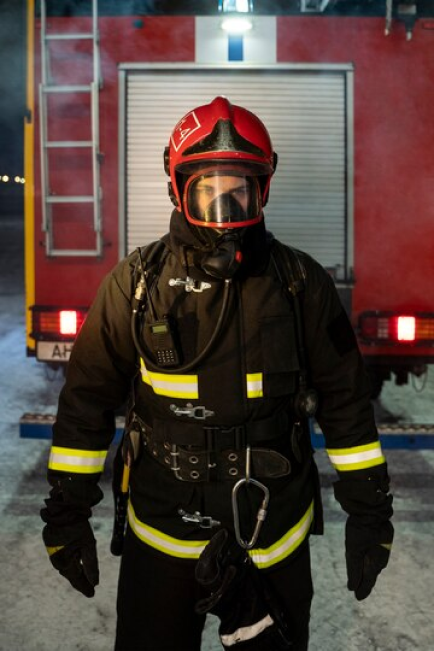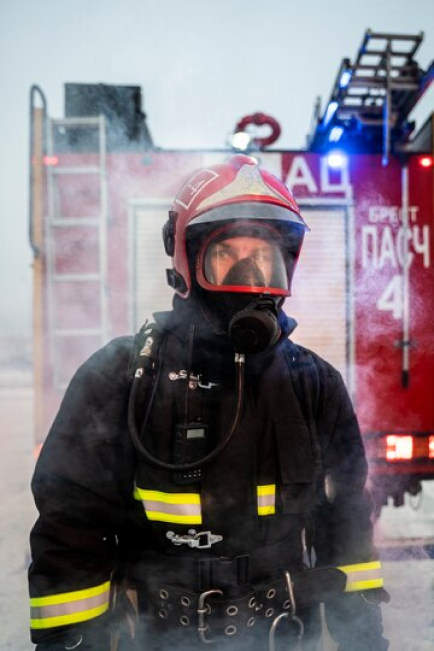The Importance and Benefits of Mock Drills in Emergency Preparedness
- info@safetymastery.com
- +91 7200322134


Why Mock Drills are Essential for Building Confidence and Improving Response Time
Why Mock Drills are Essential for Building Confidence and Improving Response Time
In today’s unpredictable world, being prepared for emergencies is crucial for the safety and well-being of individuals and communities. One effective way to enhance emergency preparedness is through the implementation of mock drills. Mock drills are simulated exercises that replicate emergency situations, allowing participants to practice response procedures, test emergency plans, and evaluate their effectiveness. In this comprehensive guide, we will delve into the importance and benefits of mock drills in improving emergency preparedness.
to Mock Drills
: Mock drills are structured exercises designed to simulate emergency scenarios such as fires, natural disasters, terrorist attacks, or other critical incidents. These drills provide participants with a realistic experience of how they should respond in an emergency, helping them develop the necessary skills and knowledge to handle crisis situations effectively.

Safety International Diploma
- Ofqual Regulated Qualifications London, UK
- GradIOSH/CertIOSH status from IOSH, UK
- TSP status from BCSP, USA
- Gateway to MSC in UK universities
Enhance your educational profile with an additional
one or two years of qualification.
one or two years of qualification.
Get Courses Details
Get Courses Details
Safety Diploma
- Government-Endorsed National Safety Diploma Program
- Qualify for registration at the Employment Exchange
- Attestation by the Ministry of External Affairs for those wishing to move abroad
- Eligible for membership with MIIRSM (IIRSM membership at discretion)
- Approved by the Government of India
- Enhance your educational profile with an additional one or two years of qualification
Importance of Mock Drills
- Skill Development: Mock drills help participants develop essential skills such as decision-making, communication, coordination, and problem-solving under pressure. These skills are crucial for effective emergency response and can be honed through regular practice in mock drill scenarios.
- Testing Emergency Plans: Mock drills allow organizations and emergency responders to test their emergency plans and procedures in a controlled environment. By identifying strengths and weaknesses in the plans, they can make necessary adjustments to improve their response capabilities.
- Building Confidence: Participating in mock drills boosts the confidence of individuals and teams, as they gain hands-on experience in responding to emergencies. This confidence can make a significant difference in how effectively they handle real-life crisis situations.
- Enhancing Coordination: Mock drills promote collaboration and coordination among different stakeholders involved in emergency response, including emergency services, government agencies, businesses, and community organizations. By practicing together in a mock drill, these stakeholders can improve their coordination and communication during actual emergencies.
- Improving Response Time: Through regular mock drills, participants can refine their response procedures and reduce the time it takes to react to an emergency. This can be critical in situations where every second counts and can help save lives and minimize damage.

Benefits of Mock Drills
- Enhanced Safety: Mock drills help identify potential hazards and risks, allowing organizations to implement preventive measures to enhance safety and reduce the likelihood of accidents or emergencies occurring.
- Improved Preparedness: By conducting mock drills regularly, organizations and individuals can be better prepared to handle a wide range of emergencies. This preparedness can make a significant difference in the outcome of an actual crisis.
- Risk Mitigation: Mock drills enable organizations to identify and assess potential risks, allowing them to implement control measures to mitigate these risks and prevent emergencies from escalating.
- Compliance and Regulation: Mock drills help organizations ensure compliance with safety regulations and standards by testing their emergency plans and procedures. This can help avoid penalties and fines for non-compliance.
- Employee Training: Mock drills serve as valuable training opportunities for employees, helping them understand their roles and responsibilities in an emergency and providing them with the necessary skills to respond effectively.
Best Practices for Conducting Mock Drills
- Define Objectives: Clearly outline the objectives of the mock drill, including the scenario, goals, and expected outcomes.
- Involve Stakeholders: Engage all relevant stakeholders in the mock drill, including employees, emergency services, government agencies, and community organizations.
- Provide Training: Offer training and guidance to participants before the mock drill to ensure they understand their roles and responsibilities.
- Evaluate Performance: Assess the performance of participants during the mock drill and provide feedback for improvement.
- Review and Update Plans: Use the insights gained from the mock drill to review and update emergency plans and procedures as needed.

Mock drills play a vital role in enhancing emergency preparedness and response capabilities. By providing participants with hands-on experience in simulated emergency scenarios, mock drills help build skills, confidence, and coordination while identifying areas for improvement in emergency plans. Organizations that prioritize mock drills as part of their emergency preparedness efforts are better equipped to handle crises effectively and protect the safety and well-being of their employees and communities.
In , the importance and benefits of mock drills cannot be overstated in today’s fast-paced and unpredictable world. By investing time and resources in conducting regular mock drills, organizations can significantly enhance their emergency preparedness and response capabilities, ultimately saving lives and minimizing the impact of emergencies. Start incorporating mock drills into your emergency preparedness plans today and take the first step towards a safer and more secure future.
